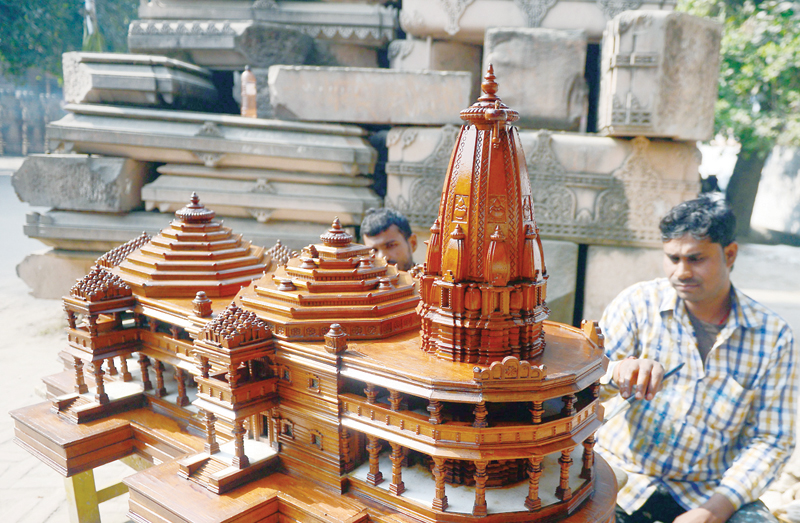

New Delhi: “Notwithstanding the lack of consensus” between the contesting parties in the Ayodhya title dispute, the Supreme Court on Friday ordered mediation to settle the Ram Janmabhoomi-Babri Masjid Ayodhya title dispute case by a three-member panel.
The panel will be headed by former Supreme Court judge Justice F M I Kalifulla with Art of Living founder Sri Sri Ravi Shankar and senior advocate Shriram Panchu as its members. The mediation proceedings would be held at Faizabad in Uttar Pradesh and would commence in a week.
“We have considered the nature of the dispute arising. Notwithstanding the lack of consensus between the parties in the matter, we are of the view that an attempt should be made to settle the dispute by mediation,” said the order pronounced by Chief Justice Ranjan Gogoi, who headed the five-judge constitution bench.
The other members of the bench were Justice S A Bobde, Justice D Y Chandrachud, Justice Ashok Bhushan and Justice S Abdul Nazeer.
While the Muslim litigants agreed to mediation as it was not divorced from the regular hearing on the batch of petitions challenging the 2010 Allahabad High Court judgment, the Hindu litigants opposed it, saying that the birth place of Lord Rama was a matter of faith and belief for them and they can’t take a contrary position in mediation. The Allahabad High Court by its 2010 judgement had trifurcated the disputed site into three equal parts, giving one each to the Nirmohi Akhada, Ram Lalla and the Sunni Waqf Board.
The SC on Friday also barred both print and visual media from reporting on the mediation proceedings. It has also barred those participating in the proceedings from speaking to the media.
“We are of the opinion that while the mediation proceedings are being carried out, there ought not to be any reporting of the said proceedings either in the print or in the electronic media,” the court said. However, the court refrained from passing any specific order and instead left it to the mediators to pass “necessary orders in writing, if so required, to restrain publication of the details of the mediation proceedings.” Asking the panel to ensure the completion of the mediation proceedings “during the period of interregnum,” the court sought the report on the “progress of mediation” within four weeks of its commencement.
The “period of interregnum” is the eight weeks given to all the parties by the court’s February 26, 2019 order to take steps to make the cases ready for regular hearing by the court.
Having closed the door on the media, the court further directed that “...the mediation proceedings will be held in camera as per the norms applicable to the conduct of mediation proceedings. The mediators may take such legal assistance as they may feel necessary at any stage of the mediation proceedings.” Pointing to the importance of “confidentiality” for the success of mediation, the court said, “We are also of the view that the mediation proceedings should be conducted with utmost confidentiality so as to ensure its success.” — IANS
Oman Observer is now on the WhatsApp channel. Click here



